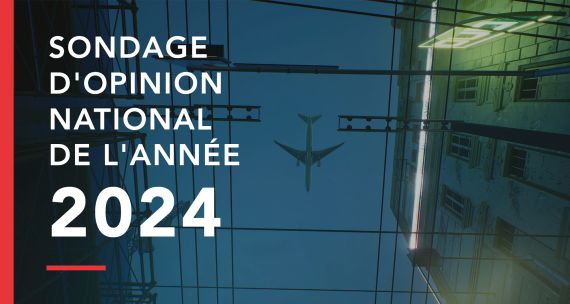Micro, small, and medium enterprises (MSMEs) make up the lion’s share of businesses in the Asia Pacific. Across the 21-member Asia-Pacific Economic Cooperation (APEC) bloc, MSMEs represent 97 per cent of all businesses and employ half of the region’s workforce.
This number is even higher in Peru, a Pacific Rim country in the same latitudes as Australia and Indonesia, where 99.6 per cent of businesses are MSMEs. The bulk of those are micro-enterprises with one-to-ten employees.
MSMEs are then significant actors in Peru’s economic growth. In 2018, MSMEs contributed one-fifth of Peru’s gross domestic product, while also making up 94 per cent of all exporting companies. Harnessing the economic potential of these businesses is crucial in ensuring Peru’s continued growth, and the Peruvian government has stated its commitment to developing MSMEs’ capacity. How then do MSMEs themselves experience Peru’s entrepreneurial landscape, and what are the obstacles standing in their way to success?
To understand the experiences of Peruvian entrepreneurs, the Asia Pacific Foundation of Canada (APF Canada) conducted the 2020 National Survey of Entrepreneurs and MSMEs in Peru through the APEC-Canada Growing Business Partnership (ACGBP), a joint initiative between APF Canada and the APEC Secretariat focused on fostering economic growth and reducing poverty in APEC developing economies. According to the 2020 National Survey, the two most significant barriers to success for Peruvian MSMEs are a lack of capital and restrictive government regulations. Furthermore, many entrepreneurs are unaware of key support programs that cater to MSMEs.
With a sample of 250 entrepreneurs, the ACGBP conducted in-person and telephone surveys in mid-2019 to explore the on-the-ground experiences of Peruvian MSMEs. The survey sample primarily reflects the experiences of MSMEs in Lima province, Arequipa region, and La Libertad region.
Insufficient financing and restrictive government regulations
While access to funding is a fundamental challenge for many Peruvian MSMEs, the COVID-19 crisis has made this issue a matter of survival. Many MSMEs are now at risk of closing due to lockdowns and other imposed restrictions. The Peruvian government is working with MSMEs to withstand the pandemic’s negative economic impacts through support funds like Reactiva Peru, employee wage subsidies, and tax relief measures.
As for government regulations, 59 per cent of survey respondents said that these pose an obstacle for their business. Some specific examples that entrepreneurs shared include lengthy administrative procedures, obstructive municipal bureaucracy, and restrictive legislation. These findings indicate that entrepreneurs need more business-friendly government policies that do not hinder their MSMEs, particularly as they deal with finding financing and other issues.
Little awareness of MSME support services
More than half of survey respondents said they were not aware of support initiatives like the CRECER Fund (a government-sponsored fund that provides loans and direct funding to MSMEs), specialized tech support from Centres of Productive Innovation and Technology Transfer (which assist MSMEs in adopting new digital technologies), or online platforms like the Ministry of Production’s Digital Kit (which provides access to business development courses and other online resources).

On the other hand, three government-sponsored initiatives stood out as the best known and liked among entrepreneurs: the online platform Peruvian Entrepreneur, the regional Centres for Business Development, and the Innovate Peru initiative, all provided by the Ministry of Production. Together, these initiatives offer free training and business advice for MSMEs through online courses and physical offices. Innovate Peru also attempts to make financing more accessible for MSMEs through national grant competitions and programs such as the MSME Fund (Fondo MIPYME).
As the 2020 National Survey results reveal, ensuring that entrepreneurs have knowledge of and access to these support initiatives is already an ongoing challenge. Of the 14 initiatives listed in the survey, only four are relatively well known among entrepreneurs. COFIDE was recognized by 70 per cent of surveyed entrepreneurs, 61 per cent identified Innovate Peru, 60 per cent knew of the Centres for Business Development, and 53 per cent recognized Peruvian Entrepreneur.
As MSMEs are forced to adapt to COVID-19, support in switching from in-person to digital operations and otherwise adapting to the changing economy is vital in guaranteeing their survival. In particular, as access to physical services is no longer viable, online support platforms are becoming more critical. And yet, only Peruvian Entrepreneur was familiar among respondents, while other online services like the Digital Kit and Produce Virtual were known by only 41 and 44 per cent, respectively, of survey respondents.
These findings suggest that there are significant gaps in access to various support programs in Peru, and in particular, online platforms. As the COVID-19 crisis continues to impact MSMEs, addressing these gaps will be crucial to ensuring entrepreneurs’ future success.
Next steps
Before the pandemic, Peruvian MSMEs faced the fundamental challenges of accessing financing, restrictive government regulations, and insufficient access to support programs. Due to the timing of the survey, the 2020 National Survey of MSMEs and Entrepreneurs in Peru did not capture the more recent impact of COVID-19 on MSMEs. However, it does provide an in-depth look into the pre-existing obstacles that are now exacerbated by the pandemic.
In response to these challenges, the survey draws out several policy recommendations for the Peruvian government and other actors in Peru’s entrepreneurial ecosystem. These include the need to review the marketing and accessibility of MSME support initiatives and revise government policies that entrepreneurs have identified as obstructive.
While the survey’s findings may be contextual to Peru, issues of financing, obstructive regulations, and a lack of support services are commonplace among economies in the APEC region. Studying the Peruvian entrepreneurial context provides valuable lessons for other APEC economies whose private sectors are also primarily made up of MSMEs. Further, the challenges identified through this survey in Peru are similar to the findings in other similar surveys conducted in Indonesia, the Philippines, and Vietnam, as part of the APEC-Canada Growing Business Partnership.
Understanding the convergent impact of both the pandemic and existing challenges facing MSMEs is crucial in informing policies meant to help entrepreneurs thrive. To this end, the APEC-Canada Growing Business Partnership will continue to convene policy-makers, on-the-ground partners, and entrepreneurs around conversations on these topics. The Partnership will be hosting a virtual capstone conference in 2021, bringing together its partners from Indonesia, Peru, the Philippines, Vietnam, and across APEC to facilitate knowledge-sharing among its stakeholders in the region. In doing so, the Partnership hopes to make its work sustainable and achieve its goal of building the capacity of MSMEs and women entrepreneurs in developing APEC economies.





